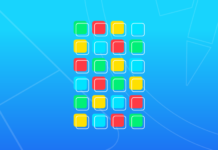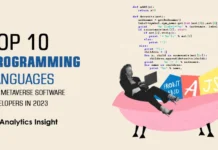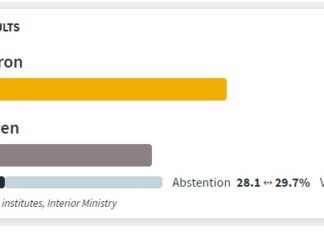Organizations and individuals from various industries are intrigued by the new possibilities offered by web3 and other web3 Applications. Many people may experience a sense of “missing out” after reviewing the top web3 applications in Defi, NFTs, and the metaverse. However, you are not late in adopting web3, especially given the sheer volume of opportunities that have recently opened up.
The increasing use of VR technologies, combined with advancements in the metaverse, DeFi, and NFT markets, establish the best path forward for web3 applications. Web 3.0 contains all of the ingredients needed to revolutionize digital transformation around the world. As a result, interest in key web3 applications for the future has increased dramatically in recent years. The following discussion will teach you about the most popular web3 applications. Simultaneously, you can learn about the possibilities for utilizing web3 in real-world applications.
Related: Web3 vs Web2
Top Web3 Applications
Storj
The list of top web3 applications would start with Storj, a decentralized storage solution. It enables users to store data securely while also ensuring fault tolerance and redundancy. Storj, albeit on a dispersed network, uses blockchain technology to revolutionize the benefits of cloud storage. The most significant advantage of Storj is the ability to perform unlimited uploads and downloads at any time.
Furthermore, Storj meets the requirements for web3 apps, such as open-source design and a free-to-use model. Furthermore, Storj ensures greater ease of use by allowing you to navigate the application with just a few clicks. Another important highlight about Storj as a web3 application would refer to the Storj coin, which powers the Storj decentralized storage platform.
Everledger
Everledger, the distributed digital global registry, would be one of the first entries among web3 app examples. It essentially provides each user with a unique record, and users can store data in the cloud with flexibility in accessing the data. Everledger’s primary applications are focused on ensuring strong fraud safeguards.
The Everledger app, in particular, aids in the tracking of diamonds, gold, wine, and other valuable assets. It aids in tracking an item’s use throughout its journey through the global supply chain. Customers can scan the Everledger sticker to ensure they are purchasing genuine goods. The Everledger app marks a watershed moment in web security by ensuring fraud protection without the use of personal information or complex passwords.
Brave Browser (Most Popular)
The most popular web3 applications could never be overlooked by Brave browser. It is a new mobile browser that aims to provide ad-blocking and other privacy-enhancing features. Indeed, Brave has emerged as one of the most popular alternatives to other popular browsers such as Mozilla Firefox and Google Chrome.
Furthermore, Brave has successfully established itself as one of the most secure browsers, with promising security features. The new open-source browser uses blockchain technology to protect users’ privacy. The Brave browser would also use blockchain to block unwanted ads and trackers. Most importantly, the Brave browser allows for the monetization of user data in exchange for Brave tokens.
Related: How to Invest in web3?
Beaker Browser
The Beaker Browser is the next option among web3 browsers that can make a significant difference. The Beaker browser, which is currently in development at Blue Link Labs, is an open-source and free browser for web 3.0. The peer-to-peer web browser can assist users in publishing web apps and websites directly from the browser.
Beaker browser is unquestionably one of the best web3 applications for usability because it eliminates the need for separate servers to be set up and maintained. In addition, users don’t have to worry about hosting their content on third-party servers, thereby improving security.
Sola
Sola is an obvious choice among top web3 apps due to its distinct functionality. It is a decentralized social media platform that runs on the Ethereum blockchain, uses IPFS storage, and has distributed nodes. Sola uses blockchain and artificial intelligence to create a social network hybrid. The web3 social media platform uses AI algorithms to deliver relevant information to users based on their preferences.
Sola focuses on creating a social media platform where everyone has equal freedom of expression without giving advertisers, influencers, and big brands a monopoly. Sola’s advanced neural learning network, Neutral AI, aids in the optimization of the content-sharing process. Users can also investigate monetization opportunities for sharing and creating content.
Decentraland
Decentraland, the most hyped project in the metaverse or the future of web3, is an online virtual world with many interesting experiences. It is an obvious entry among the best web3 apps that offers something unique. Users can meet, interact, socialize, and play games with other users in the virtual world.
Furthermore, the Decentraland metaverse is primarily concerned with the customization of virtual parcels of land and the creation of new experiences. Users have been investigating the possibility of mortgages on virtual property and renting out virtual properties for metaverse events. Indeed, Decentraland has piqued the interest of many major corporations, including Samsung, Adidas, and PwC.
Steemit
Steemit is another example of a social media application based on web3 principles. It is more like the web3 equivalent of Reddit and functions similarly to a decentralized social blogging website. The most notable feature of Steemit, as one of the web3 app examples, is the monetization of user content.
Related: Web3 Examples
Ethlance
Web3 applications in the fields of job search and professional networking have resulted in platforms such as Ethlance. Users can use the online platform to apply for jobs. Ethlance, for example, employs blockchain technology to speed up the process of matching job seekers with suitable employers.
Ethlance is also one of the innovative web 3.0 application examples that provide new opportunities for freelancers. As a decentralized talent marketplace, Ethlance can break down traditional barriers between freelancers and businesses. Employers may save money on recruiting talent, while freelancers may gain more control over their work.
DTube
DTube, like Brave as a decentralized alternative to popular browsers, is a video streaming giant YouTube alternative. The videos that appear in user feeds are not controlled by the decentralized video streaming platform. On DTube, users have complete control over what they see and share.
Furthermore, users have the ability to choose which videos to monetize. DTube, as one of the most important web 3.0 applications for users in the future of web3, also practices decentralized governance. Users have complete control over censorship and other content visibility and usage guidelines on the video-streaming platform.
Secretum
Secretum is a new decentralized messaging application. It can be thought of as a decentralized alternative to messaging apps like WhatsApp. Users can communicate with one another without providing a phone number or an email address, ensuring greater security and privacy. Secretum’s built-in trading functionality also allows for efficient trading of cryptocurrencies, NFTs, and other blockchain tokens.
Sapien
Sapien is a one-of-a-kind Web 3.0 example. The Ethereum blockchain powers this decentralized social news site. It’s also extremely customizable.
It’s a good alternative to Google or Facebook for social news. It will allow users to create their own apps without having to pay or display advertisements. Sapien’s platform provides users with the tools they need to build and launch apps quickly.
Sapien is a web 3 blockchain platform that offers apps, services, and technology. It allows users to interact, transact, share information, and form communities using a set of self-sovereign tools. Sapien web 3 was created to give everyone a way to organize their online lives.
LBRY
The LBRY is a blockchain-based decentralized file-sharing and payment network that powers social networks and video platforms.
LBRY is a decentralized digital library that stores various types of content. As a user, you can read, watch, and play on the site. As it supports books, music, and movies, it appears to be one of the first Web 3.0 projects.

























































